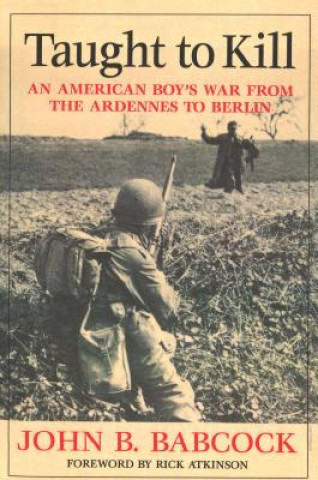
Kod: 04820694
Taught to Kill
Autor John B. Babcock
By mid-1944, the U.S. Army was facing a critical shortage of the most important commodity in any war, the common foot soldier. Higher-than-expected casualties during the liberation of France had forced the Army to comb its ranks f ... więcej
- Język:
 Angielski
Angielski - Oprawa: Twarda
- Liczba stron: 282
Wydawca: Potomac Books Inc, 2005
- Więcej informacji o książce

165.30 zł
Zwykle: 174.08 zł
Oszczędzasz 8.78 zł

Dostępna u dostawcy
Wysyłamy za 14 - 18 dni
Zobacz książki o podobnej tematyce
-
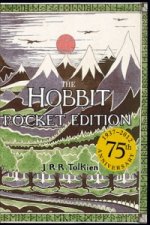
Hobbit: Pocket Hardback
61.24 zł -15 % -

Book of Signs
45.52 zł -4 % -

Tao of Physics
61.14 zł -23 % -
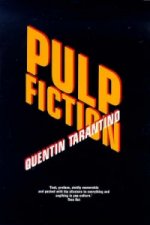
Pulp Fiction
48.95 zł -14 % -

Aesthetic Surgery of the Breast
1274.03 zł -
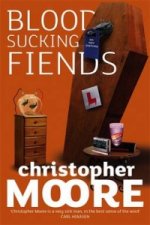
Bloodsucking Fiends
47.34 zł -23 % -
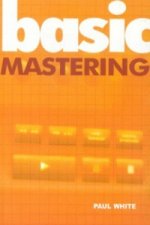
Basic Mastering
45.83 zł -6 % -

Bill's Italian Food
110.40 zł -

English Garden
29.20 zł -23 % -
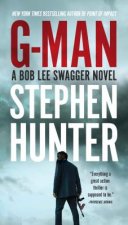
G-Man
45.62 zł -5 % -

Dancing Naked in a Haunted House
86.83 zł -

Lasting Value - Lessons from a Century of Agility at Lincoln Electric
423.90 zł -
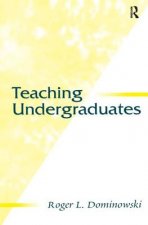
Teaching Undergraduates
856.47 zł -

Worms and Human Disease
290.42 zł -10 %
Podaruj tę książkę jeszcze dziś
- Zamów książkę i wybierz "Wyślij jako prezent".
- Natychmiast wyślemy Ci bon podarunkowy, który możesz przekazać adresatowi prezentu.
- Książka zostanie wysłana do adresata, a Ty o nic nie musisz się martwić.
Więcej informacji o Taught to Kill
Za ten zakup dostaniesz 96 punkty
 Opis
Opis
By mid-1944, the U.S. Army was facing a critical shortage of the most important commodity in any war, the common foot soldier. Higher-than-expected casualties during the liberation of France had forced the Army to comb its ranks for replacement infantrymen. Plucked in 1944 from the safety and privilege of the Army Specialized Training Program (the World War II version of the college deferment of the Vietnam years), twenty-two-year-old John Babcock suddenly found himself an infantry private headed to Europe. Raised in an upper-middle-class family, this sensitive and literate youth was thrust into a group of coarse, uneducated, and sometimes brutal draftees who were headed to the 78th Infantry Division as replacements. Babcock demonstrates that the "greatest generation" was not always that. Instead, it was like any other cohort - full of liars, cowards, and ordinary men who simply wanted to stay alive and go home. Babcock lets us see the war through his eyes - just over the rim of the foxhole. Undergoing his baptism of fire in the Battle of the Bulge, he endures the trials of combat, advancing through attrition to become the senior sergeant in the company. This ordinary enlisted infantryman in "just another combat division" takes the reader from infantry basic training and seven months of combat to postwar occupation duty in Germany and back home. It is one infantry rifleman's story rather than an account of how his division fit into the grander scheme of the war in Europe - though the author relates to that by providing the reader with a roadmap of dates and locations taken. Babcock offers an intimate taste of combat, casualties, how he fought, and with which weapons (in clear "civilian" language), and both the heroism and cowardice of his fellow soldiers. Published in cooperation with the Association of the United States Army, it is a gripping account of how an ordinary American boy felt and experienced the so-called good war. Foreword by Rick Atkinson, author of An Army at Dawn and In the Company of Soldiers. The best war stories are always less about battles than the men who fight them. The extravagant stress of combat is a great revealer of character, refracting a soldier's elemental traits the way a prism refracts light. We see the man's mettle, for good and for ill. Writing well about war can never ennoble combat, but it can redeem those forced to wage war by affirming their humanity. We sense the skull beneath the helmet, the boy behind the rifle, the heart beating under the olive-drab field jacket. Nearly sixty years after serving as an infantryman in Europe during the last months of World War II, John B. Babcock has written a memoir that is compelling, authentic, and deeply human. He reminds us that the war, like all truly epic stories, is bottomless; there is more to write, and there will always be more to write. His perspective is from the lip of a slit trench, the mud-spackled view of a junior sergeant in a mortar section. Larger military and political issues rarely intrude. We never see the big arrows on the map, never even know what division the writer is in. This allows us to experience the war as Sergeant Babcock saw it, smelled it, heard it, felt it. He bears witness well, with irony and sardonic humor and a flinty refusal to take refuge in retrospective sentimentality. He remembers the "rye bread and grease smell" of German prisoners tramping toward their cages; the "flick-of-a-whip swish" that precedes a mortar round detonating; the twitching of the mortally wounded; the smell of G.I. soap and G.I. socks, of Cosmoline and flea powder, of "pine pitch from freshly severed branches." He remembers how the dead become part of the landscape, even serving as landmarks for those giving directions, as in: "come up the street to the guy with the hole in his head, and turn right." He remembers the terror of the first near-miss from an artillery shell; the fumbling search of enemy corpses for spare lighter flints; the difficulty in hugging the ground for a mortarman wearing a canvas bib stuffed with a dozen shells. Sergeant Babcock will not, cannot avert his eyes. The war he remembers includes friendly fire and fragging, looting and rape and the execution of prisoners. He records these "shabby transgressions," but also valor, and hilarity, and infantrymen rubbing each others' frozen feet to ward off trench foot, a poignant image of mutual devotion that tells us much about comradeship. This is a thoroughly modern combat memoir, one that enriches the genre. If occasionally crude and often haunting, it is always vivid. Just like war.
 Szczegóły książki
Szczegóły książki
Kategoria Książki po angielsku Humanities History Regional & national history
165.30 zł
- Pełny tytuł: Taught to Kill
- Podtytuł: An American Boy's War from the Ardennes to Berlin
- Autor: John B. Babcock
- Język:
 Angielski
Angielski - Oprawa: Twarda
- Liczba stron: 282
- EAN: 9781574887990
- ISBN: 1574887998
- ID: 04820694
- Wydawca: Potomac Books Inc
- Waga: 567 g
- Wymiary: 230 × 150 × 28 mm
- Data wydania: 30. May 2005
Ulubione w innej kategorii
-

Hundred Years' War on Palestine
57.71 zł -15 % -

Ethnic Cleansing of Palestine
61.24 zł -15 % -

History of Japan
81.39 zł -4 % -

Ten Myths About Israel
55.40 zł -10 % -

Strange Death of Europe
70.20 zł -14 % -

Decline and Fall of the Roman Empire
25.07 zł -26 % -

Secret History
51.87 zł -23 % -

God's Playground A History of Poland
291.63 zł -

Mayflower
81.69 zł -5 % -

How to be a Victorian
51.87 zł -23 % -

Plantagenets
61.14 zł -23 % -

General's Son
85.62 zł -5 % -

Iran: A Very Short Introduction
57.71 zł -5 % -

Temples of Karnak
651.97 zł -

Cuneiform
47.34 zł -23 % -

Twenty Years A-Growing
42.70 zł -23 % -

China in Africa
155.53 zł -

Bohemian Paris
81.49 zł -5 % -

Islandman
42.70 zł -23 % -

History of Witchcraft in England from 1558 to 1718
78.97 zł -

Lancaster And York
89.04 zł -1 % -

Alexiad
89.75 zł -4 % -

Inside Hitler's Greece
99.72 zł -10 % -

Modern France: A Very Short Introduction
57.71 zł -5 % -

Diana: Her True Story - In Her Own Words
52.37 zł -15 % -

The Fourth Turning
77.26 zł -14 % -

The Oxford History of Ancient Egypt
65.77 zł -23 % -

Churchill: The Power of Words
70.20 zł -14 % -

Palestine
93.17 zł -15 % -

Korean History in Maps
133.57 zł -5 % -

Great Gatsby (Wisehouse Classics Edition)
32.73 zł -70 % -

Viking Way
196.43 zł -6 % -

The Thirteenth Tribe
59.42 zł -

My Promised Land
61.24 zł -15 % -

Vanished Kingdoms
87.93 zł -14 % -

Age Of Revolution
70.41 zł -23 % -

Life and Death of Anne Boleyn
100.22 zł -3 % -

Coming of the Third Reich
79.47 zł -23 % -

Children of Ash and Elm
78.97 zł -14 % -

Europe Between the Oceans
140.12 zł -10 % -

Socialism Betrayed
97.30 zł -5 % -

303 Squadron
79.47 zł -23 % -

Ancient Celts, Second Edition
133.57 zł -5 % -

Dancing in the Glory of Monsters
81.49 zł -5 % -

Battle of Britain: Luftwaffe Blitz (Images of War)
112.41 zł -6 % -

Age of Confucian Rule
139.41 zł -

Beyond Band of Brothers
70.41 zł -23 % -

Benjamin Franklin
70.41 zł -23 % -

On China
78.97 zł -14 %
zadowolonych klientów
Od roku 2008 obsłużyliśmy wielu miłośników książek, ale dla nas każdy był tym wyjątkowym.
Copyright! ©2008-24 libristo.pl Wszelkie prawa zastrzeżonePrywatnieCookies


 21 milionów książek
21 milionów książek Dostawa 10.99 zł
Dostawa 10.99 zł (32) 444 93 66 (8-15.30h)
(32) 444 93 66 (8-15.30h)